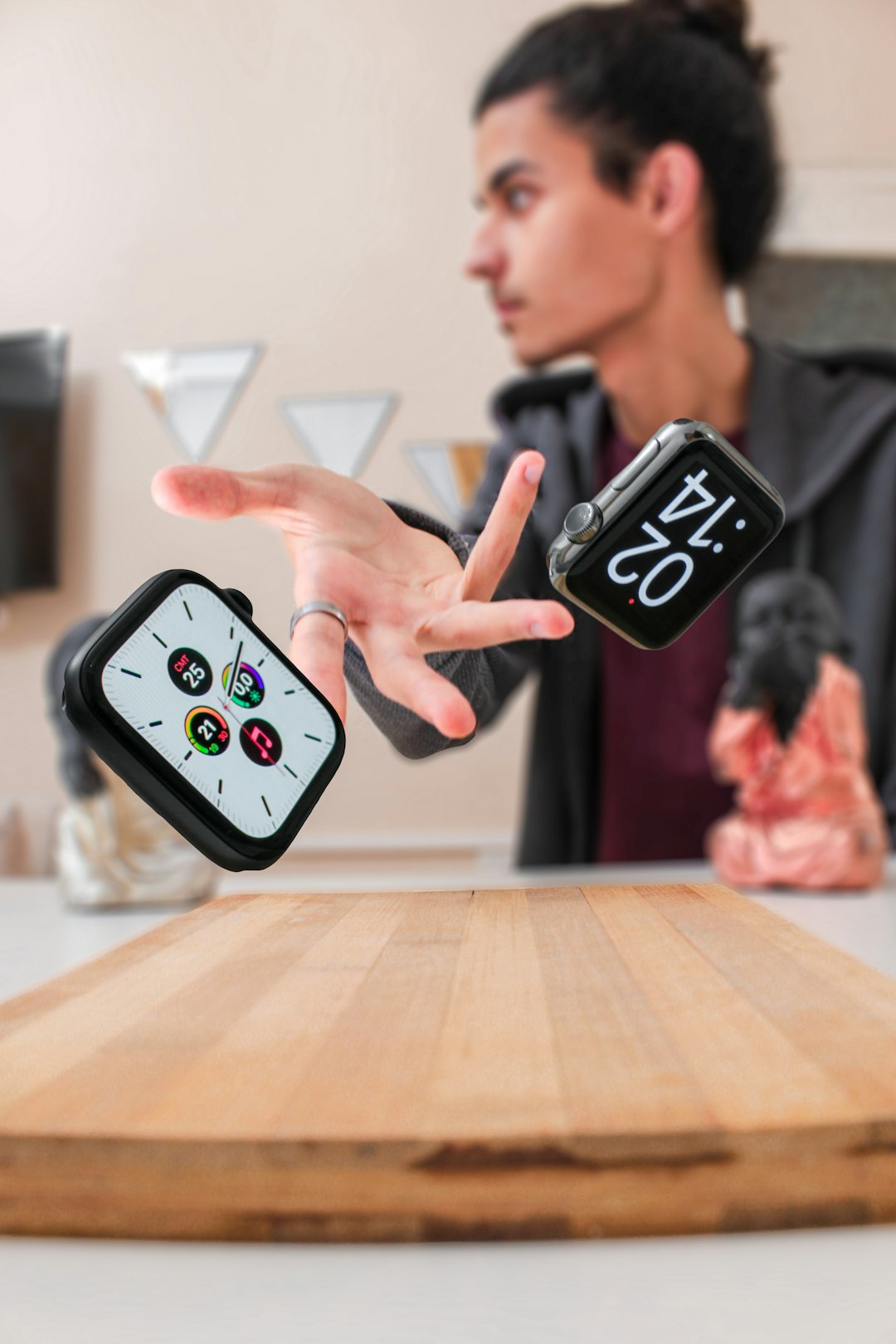
The other day, I asked Christina what time it was.
“Time for you to get a watch, sucka!”
My previous watch was a 1977 stainless steel Seiko “Pan Am” (model number M158-5000). The fact that I know the model number makes me sound like a watch guy. But the truth is I’m just a guy who has access to Google image search, five minutes to spare for internet sleuthing, and a crystal clear memory of the watch he “borrowed” from his father in the late 1980s.
My father, who spent half the year on the road, loved the Seiko “Pan Am” because it was one of the first digital watches that had presets for every timezone, from Greenwich Mean Time, to Hong Kong, to New York. I loved that watch because I thought stainless steel looked cool (correct), and because I was the kind of boy who thought knowing the time in Manilla would impress girls in Los Angeles (incorrect).
I wore my borrowed Seiko “Pan Am” everyday until it died. I took it to a few watch repair specialists, but they couldn’t resurrect the watch. I wrote to Seiko to ask if they were still selling the “Pan Am.” Someone from Seiko wrote back, complimented my great taste in time pieces, and informed me that they had ceased production on that particular watch back in the late 1970s.
Since I was about to finish college around the time the “Pan Am” died, my father offered to buy me a new watch as a graduation present. I’m sure he had something fancy in mind, maybe a gold watch with Roman numerals, even though I hate gold almost as much as I hate the hassle of doing the math required by the Roman numeral system. Thankfully, my sister intervened.
“He’s not gonna wear it,” Allison told our father. “Michael likes experiences, not material things.”
At that point, my little sister gave me one of the greatest gifts of my life. With the skill of a seasoned negotiator, Allison talked our father into giving me access to his frequent flyer miles for one year. (I think it helped that gifting miles was less expensive than buying a watch).
After completing college, Dad’s frequent flier miles sent me to Southeast Asia, Central America, and Eastern Europe. My earnings from odd jobs and working as a PA covered my expenses. And despite my mother’s protests, I did it all without a wrist watch.
Looking back, the absence of the wrist watch was an advantage for a shy young man who was working a little too hard not to be so shy. Without a watch, I had an excuse to ask a stranger for the time. I learned quickly that in a foreign country, a forgettable question in a familiar accent is a good conversation starter.
When I returned from my travels, I meant to get a watch. But Allison was right. I’m not into material things. And I hate shopping. Plus, everyone around me had the time, and I felt confident asking for it! So I put off buying a watch for a few more years.
Then everyone got a cell phone. If memory serves, the top two value propositions of my first “feature” phone—a real piece of shit—were subpar mobile telephony and a clock. I left that phone at home as much as I could.
Then a few years later, a man who was such a force of nature that he made turtlenecks cool, announced something new: the iPhone. Right away, I understood three things:
It was a phone
It was also clock
I wanted one real bad
At some point, probably in 2008, I bought the original iPhone. Ever since, I’ve had some version of the iPhone by my side for nearly every moment of my life.
If you had told me at the time that my first iPhone would be the beginning of the end for things like phone calls and talking to strangers, I would’ve laughed behind your back. But if you had actually made that prediction, you would’ve been right, and somewhere around 2018, I would’ve written you a text to say so. But I probably would’ve deleted the text draft before sending it to you. See, somewhere around that time, I had begun to get this sinking feeling that a device that connects us to everyone, might be the thing that’s keeping us from connecting with anyone.
In 2015, three years before my sinking feeling of disconnection began to sink in, Apple released another new thing: the Apple Watch. Since I had gone watch-free for so long, I was skeptical. Why get an Apple Watch, I wondered, when I already have an iPhone? The way I saw it, the two devices had nearly identical capabilities, except everything on the Apple Watch was smaller.
But a lot of people—tech bros, Apple fanboys, influencers, gadget geeks, and early adopters—were on board with the Apple Watch. By 2020, if the Apple Watch Wikipedia entry is to be believed, an estimated 100 million people would own an Apple Watch.
Eventually, a critical mass of my social network—writers, cranks, shiftless layabouts, Apple fanboys, degenerate gamblers, thought followers, GIF enthusiasts, cinephiles, overachievers, Taco Tuesday observers, and scoundrels—purchased Apple Watches. Everyone I know who bought one loved their Apple Watch at first sight. I was intrigued, but as usual, slow to adopt.
Then, last Friday, in the homestretch of 2022, I went to Best Buy and purchased an Apple Watch. I was late to the Apple Watch party, but I came here to do two things: ditch my phone and get my life back. Trouble is, I’m all out of attention span.
Just You, Watch
My plan for my Apple Watch was relatively straightforward. I wanted the watch to play audio (music while I write, books while I do chores), measure my movement and collect other health data, and alert me to calls and texts so that I can ignore them.
An iPhone can do most of those things, except for some of the health monitoring. But the iPhone also has a lovely six-inch screen that’s purpose-built for doom-scrolling on social media and doom-skimming on news apps. It’s also ridiculously easy to check email and Google useless shit on an iPhone.
The appeal of the Apple Watch, for me at least, is that it has an impractically small screen. You can check email or consume the doom du jour on an Apple Watch, but it’s difficult and unpleasant, especially for a dude with shitty vision, fat fingers, and a tendency to go full-Luddite whenever any piece of tech goes on the fritz.
My hypothesis was that the Apple Watch represented a way for me to enjoy the functionality of the phone, without suffering the hazards of too much screen time. But as Francis Bacon, a key contributor to both the scientific method as well as the Wendy’s Baconator, famously said, “hypothesis is just fancy-pants science talk for, let’s see if our wild-ass guess is right.”
Human guinea pig
Studies show that laymen such as myself consistently misunderstand studies, and the more we use said studies to support the totally sus claims we make online, the farther we get from anything resembling truth. With that in mind, I read exactly zero studies before putting on the Apple Watch. But to make sure this experiment of mine went off without a hitch, I did stay at a Holiday Inn Express. OK, that’s a lie. I stayed home, put the Apple Watch on my wrist, and pretty much did my thing.
One Sunday morning, a little more than a week into my Apple Watch experiment, my brother Zak called. At the time, my phone was in the bedroom, but I was in the kitchen working on meal prep for the coming week and listening to a legal thriller about a patent lawyer who ends up defending an unlikeable tech bro accused of murdering a federal judge in East Texas, where patent trolls thrive and innovation goes to die.
“Hey dude, I’m talking to you on my wrist!” I said. “I’m living the future.”
“Or, you’re living in the past, and the past is an old Inspector Gadget episode.”
“Good point. If I’m living in the past, here’s some advice: buy Apple stock.”
“That’s probably a good idea,” Zak said. “Half the customers at Ace are using their Apple Watches to pay. It’s pretty cool, actually.”
I told Zak I didn’t plan to set up Apple Pay because I didn’t see myself buying stuff with a swipe of my wrist. But that was a lie; I’ve already used similar payment systems on vacation. The truth is, I’m irrationally invested in a wallet Christina bought me because the wallet says, “Bad Motherfucker” on it.
“I got the watch to reduce screen time on my phone.”
“Isn’t that the same logic as buying a vape pen to quit smoking?”
Zak had a fair point. Vaping was initially pitched as harm reduction for smokers who couldn’t kick the habit with patches and gum. Maybe vaping began with a good hypothesis, but the experiment went off the rails because Big Tobacco was replaced by Big Vape, and Big Vape needed new customers, which is why the Big Vape marketing people told the Big Vape R&D people to work on new flavors like candy and bubblegum.
“So basically I’m asking my drug dealer to help me quit drugs?” I asked.
“Basically. But don’t feel bad. At least the Apple Watch looks cool.”
“But that’s what Big Tobacco said about cigarettes. And it’s what drug dealers say about drugs.”
“If the shoes fits…” Zak said.
We talked some more about the irony of fighting fire with fire, then things got serious.
“Is the watch helping you?” Zak asked.
“So far, so good. I’m low-key obsessed with closing the rings everyday.”
The rings, I explained, track how much I move, exercise, and stand during the day. I set the goals when I set up the watch. Everyday, my watch reminds me to stay on pace. When I come up short, the watch offers encouragement. When I hit my targets, the watch tells me I’m doing a good job. Wearing an Apple Watch is a little like tying a piece of string around your finger, assuming that string is connected to the internet.
“Hey man, knowledge is power,” Zak said. “Good on ya.”
Yes, I thought, good on me indeed.
“Anecdotally, there’s also some positive news,” I said. “I watched three movies this week, and I was able to focus on them because my phone was in the other room.”
“That’s great! What did you watch?”
“Real Genius.”
“Great.”
“Commando.”
“Also, great.”
“Who’s Harry Crumb?”
“Well… two out of three ain’t bad.”
“Yeah, I love John Candy, but that one doesn’t hold up. Thankfully, my watch saved me from sitting through the whole thing.”
“I thought the watch was supposed to minimize distractions?” Zak asked.
“It does. But it also tells me when to go to bed.”
“It tells you when to go to bed?”
Zak sounded incredulous, and maybe a little superior to a dude with a digital nanny strapped to his wrist.
“I told it to tell me when it’s bedtime. So far, I’m getting eight hours, and I’m sleeping better.”
“That’s good, I guess, but it tells you when you have to go to bed?” Zak asked again in the same tone.
“Well, you don’t have to listen to it.”
“What happens if you ignore it?”
“The ghost of Steve Jobs haunts your dreams.”
Obviously, I was kidding about the ghost of Steve Jobs. It’s actually a hologram of Michael Fassbender, who played the Apple founder in Danny Boyle’s 2015 biopic Steve Jobs. But I wasn’t kidding about how the Apple Watch, in just over a week, had already begun to change my life. Already, I was:
Moving more
Standing more
Exercising more
Sleeping better
Consuming less doom
Those changes are exciting, but the speed, scope, scale of the Apple Watch’s impact on my life is also unnerving. Because on the one hand, Zak is right: knowledge is power, and with a little more knowledge, I have the power to achieve my life goals. But on the other hand, Zak is also right: asking Apple to cure my screen addiction is akin to asking a drug dealer for sobriety.
Like the best drug dealers, Apple makes bank on its products. But unlike drug dealers, Apple spends a lot of money on advertising. Watches, phones, and computers, unlike illicit drugs, don’t sell themselves.
To this day, Apple’s most famous ad is its 1984 commercial, which ends with a promise that Apple’s technology—vibrant, colorful, determined to think outside the box—will free us from a techno-authoritarian dystopia. It’s a great ad, but I’m not so sure about that promise.
Nearly four decades later, Apple’s 1984 commercial remains one of the most influential ads of all time. I’m not Don Draper, but I think there are three reasons for this.
Steve Jobs demanded the win and got it!
Whether it’s a feature film or a 30-second spot, director Ridley Scott does not fuck around.
People are so obsessed with the totalitarian government depicted in George Orwell’s 1984 that they reflexively reject any government intrusion into their lives, while simultaneously, and thoughtlessly, opening the door for private companies, like Apple, to own their asses from cradle to grave.
It’s the last point I find most unsettling. For the first thirty-one years of my life, I never considered a mobile phone essential, even though the technology first appeared on the scene in 1973, and my father, always the early adopter, began carrying one of those Motorola bricks in 1983. Apple set me straight on mobile phones inside of a year. For nearly two decades, I lived without a watch, and during some of those years I was better for it. Within a week, Apple set me straight again.
I like to think of myself as an enlightened free thinker. But deep down I know that’s a lie I tell myself to justify every bandwagon I jump on. The truth is, when Apple invents a WiFi-enabled third eye, I’ll buy one, just as soon as the early adopters insist the Apple Eye is something you can’t live without. Meanwhile, I own an Apple Watch, and it tells me how to live. That’s what time it is, sucka.
If you’re new here, please👇
If you’re a returning champ, please👇
Stick around and chat!
You know the drill. I’ve got questions, you may or may not have answers.
What was your first mobile phone? Was it a piece of shit, or did you get the Motorola Razr?
Do you own an Apple Watch, or another piece of wearable technology?
What’s the last movie or TV show you watched without checking your phone?
If you could un-invent (not a real word) any piece of technology, what would it be and why?
What will it take to make turtlenecks cool again?



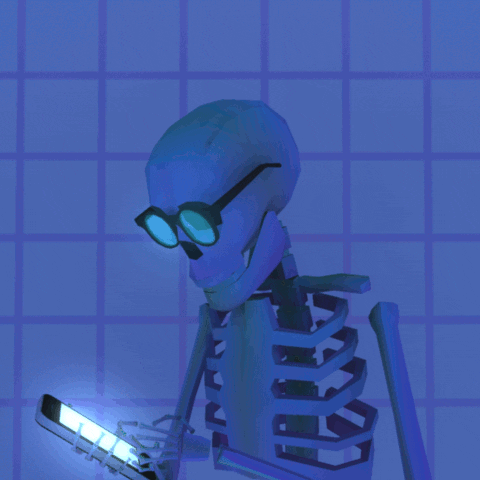
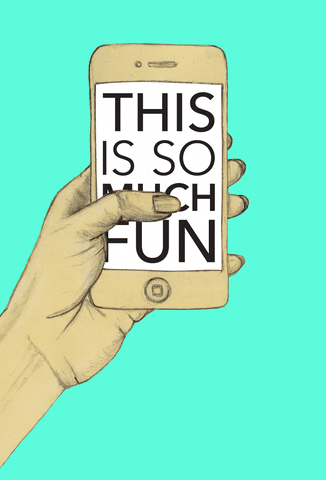



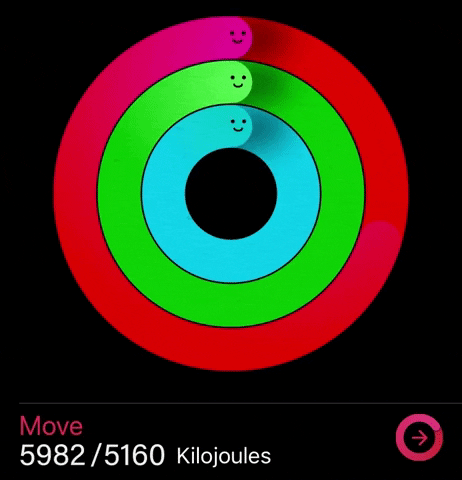

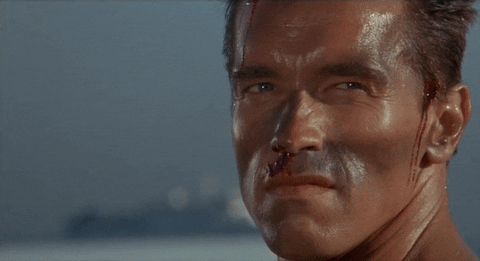

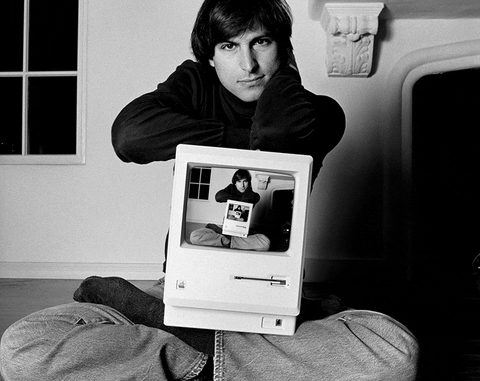
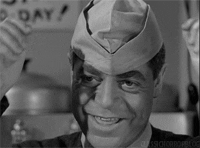
I am sorry, but no one really looks good in a turtleneck.
Also, “thought followers,” haha!
I wore a Fitbit for a year and it really helped but like you I felt suspicious and when it finally broke and I did not replace it, I was quite relieved. Why? I need to give this some thought.
We are an anti-Apple household because I am an authoritarian husband and father that loves to suck the joy out of everyone around me. I also can't justify spending $4k on 4 phones for the entire family when my first car cost half that. I'm also realizing I'm an old man who likes to use Situation Normal comments as an opportunity to vent. You are my therapy now, Michael.